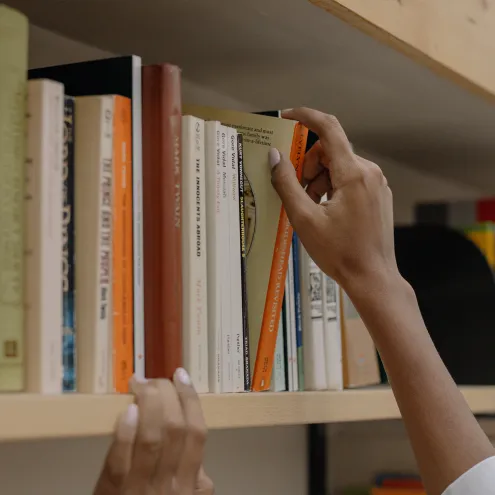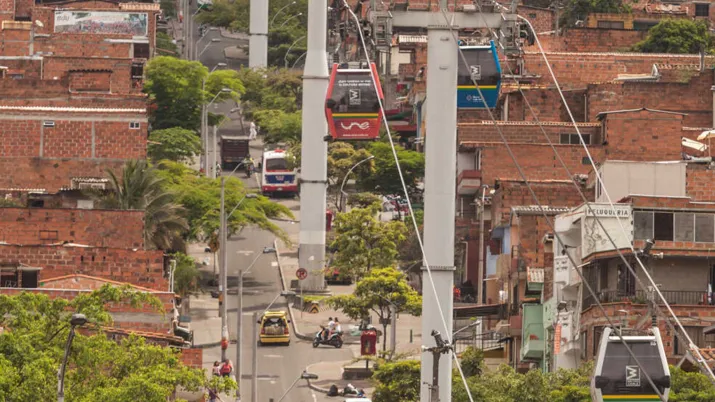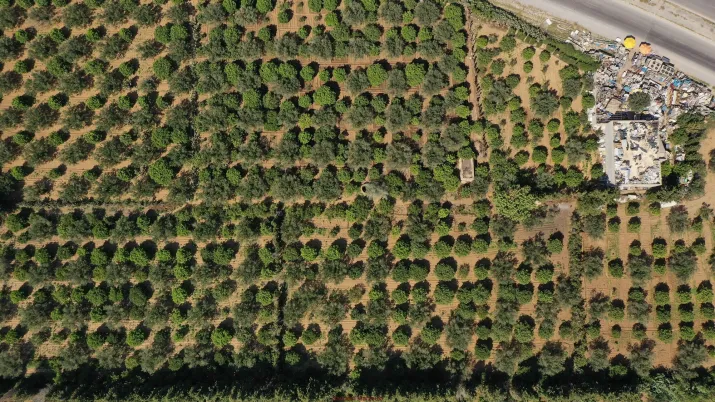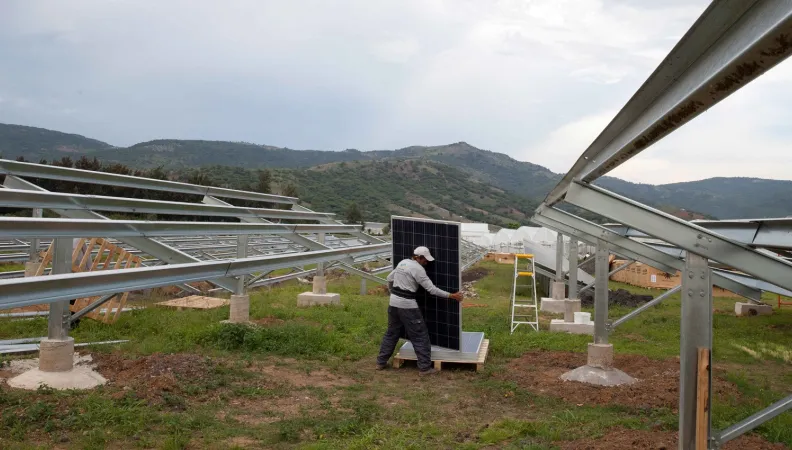 Legal notice EU (project) The energy transition is a challenge and a necessity for Mexico’s economic transformation. What role can socially owned renewables and energy cooperatives play in enhancing the livelihoods of the most vulnerable and in reducing inequality?
Legal notice EU (project) The energy transition is a challenge and a necessity for Mexico’s economic transformation. What role can socially owned renewables and energy cooperatives play in enhancing the livelihoods of the most vulnerable and in reducing inequality?
Context
The energy transition is a challenge and a necessity for Mexico’s economic transformation as, on the one hand, the country spends 7.6% of its GDP on fossil fuel subsidies and, on the other hand, in 2020 it was estimated that the economic impact of climate disaster increased by 202%. Indeed, to achieve a successful energy transition and secure a sustainable growth path, Mexico needs to modernise its energy sector, reduce reliance on fossil fuels, and ensure sustainability. However, it is necessary to start from the territory, involving communities in the co-construction of resilience and the strengthening of local productive chains. Community and cooperative models play an essential role in promoting the creation of collective businesses managed in a democratic and solidary manner.
An example of just transition opportunities are energy cooperatives. They are a clear and promising model that involves local communities in the production, distribution and consumption of renewable energy, promoting decentralisation and democratisation of energy, especially in those territories historically and systematically excluded.
However, research conducted in Mexico during the first phase of the Research Facility on Inequalities showed low wealth sharing and limited social mobility in the country. In this context, it is necessary to address the just energy transition from an intergenerational social mobility approach and a social perspective to ensure benefits for the whole society.
This work is also part of AFD's dialogue with the Mexican authorities on options for diversifying the economy and reducing inequalities.
This project is part of the Extension of the EU-AFD Research Facility on Inequalities. Coordinated by AFD and financed by the European Commission, the Extension of the Facility will contribute to the development of public policies aimed at reducing inequalities in four countries: South Africa, Mexico, Colombia and Indonesia over the period 2021-2025.
Objectives
In partnership with the Centro de Estudios Espinosa Yglesias (CEEY) and in collaboration with the National Institute of the Social Economy (INAES), this research project aims to develop a conceptual and analytical research input for a better understanding of the role that renewable energy cooperatives can play in reducing inequality and increasing social mobility, and how they can be financed.
This input will:
- Conceptualise the just energy transition approach in the area of existing structural inequalities;
- Make a diagnosis from the perspective of intergenerational social mobility, as well as from the perspective of social and solidarity economy, and its relevance in the framework of just transitions, in order to establish identification criteria, social selection and prioritisation of projects;
- Use this diagnostic to propose criteria for the identification and selection of projects that prioritise the populations with the greatest disadvantages of origin (with the least space for social mobility), given the requirement of «no losers» of the just transition;
- Review and articulate technical issues related to decentralised energy and distributed generation, given their importance in the social economy in the just energy transition;
- Review the current INAES projects related to the subject in order, where appropriate, to guide the construction of identification and selection criteria.
Method
The research team will first conduct an exhaustive review of literature focused on environmental justice, climate justice, social mobility applied to environmental justice and intergenerational environmental justice. The literature will be analysed from the perspective of the energy transition and the intersection of these issues.
Based on this review of literature, researchers will develop a conceptual framework to understand the just energy transition in the field of current structural inequalities. It will also explain how this conceptual framework can be relevant for public policy decision-making.
The research team will also identify information gaps and research needs, with a special focus on the study of just energy transitions.
Research findings
You will find below the different research papers related to this project:
In progress
Discover more research projects in Mexico
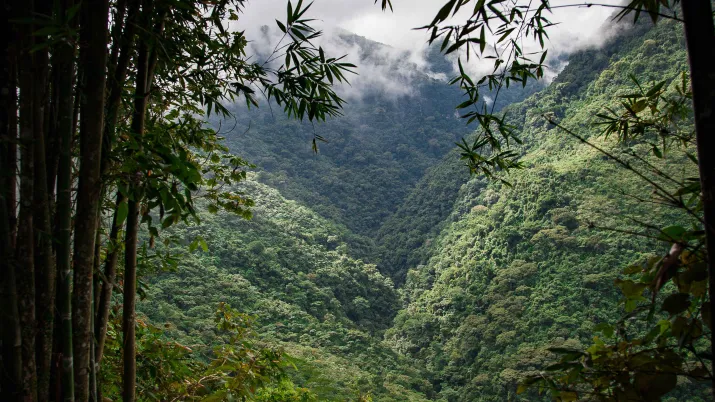
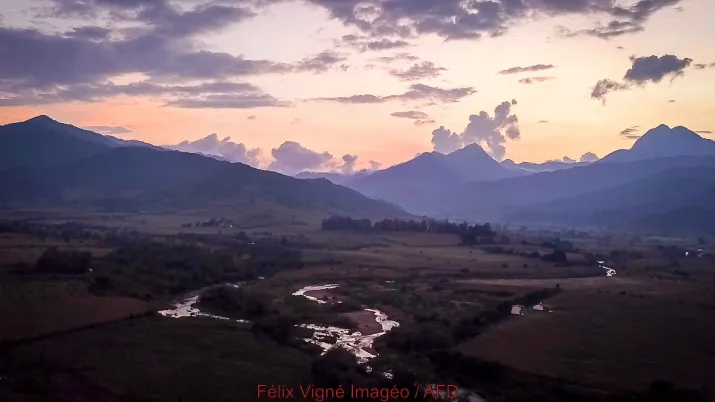
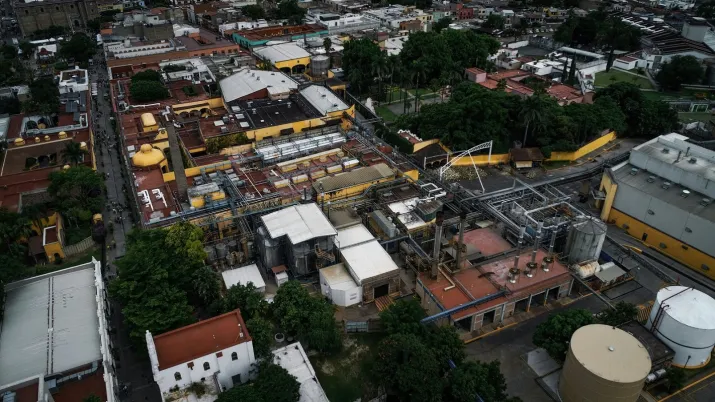
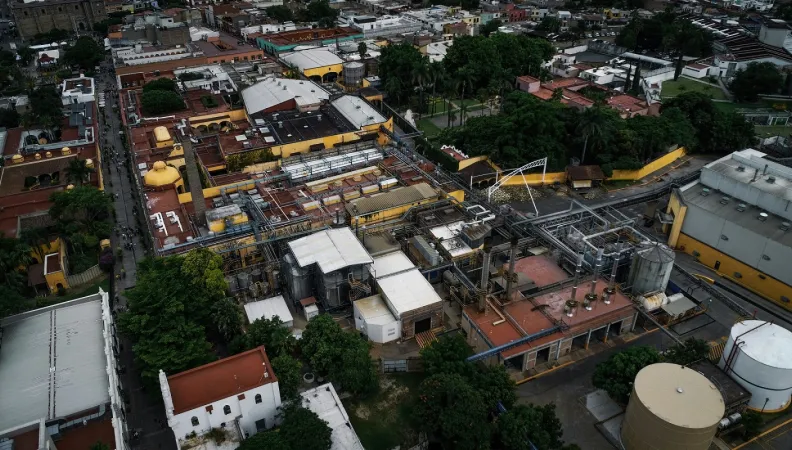 Legal notice EU (project) The phenomenon of relocation of value chains not only presents a set of challenges but also a unique opportunity to harmonise regional development throughout Mexico and to reduce inequalities. This research project, in partnership with Monterrey Institute of Technology and Higher Education, will examine this phenomenon in greater depth, focusing on the components of energy and human capital.
Legal notice EU (project) The phenomenon of relocation of value chains not only presents a set of challenges but also a unique opportunity to harmonise regional development throughout Mexico and to reduce inequalities. This research project, in partnership with Monterrey Institute of Technology and Higher Education, will examine this phenomenon in greater depth, focusing on the components of energy and human capital.
Context
Trade integration has been very beneficial for Latin America and the Caribbean (LAC) over the past 30 years. However, multiple crisis (the financial crisis of 2008, the Covid-19 pandemic, the climate crisis, etc.) have generated uncertainty about the future of the multilateral trading system. For example, the Covid-19 pandemic highlighted the fragility of certain value chains due to the vulnerability of a system in which factories are located at the other end of the world from where these goods are consumed. All this is leading to reconfigure global value chains, which tend to shorten, becoming less global and more regional – a phenomenon known as the “nearshoring model”. This new context creates an opportunity for LAC countries, and especially for Mexico, which identify themselves as the best alternative for the relocation of value chains under the nearshoring model.
Historically, the Mexican North-Central states have benefited most from the processes of integration into global value chains. This is natural, since it is where the manufacturing export base is located due to its proximity to the United States. On the other hand, the South-South-East of the country presents historical lags that make it significantly difficult to integrate it into global value chains and, therefore, to take advantage of change in the current international context.
In this regard, it is imperative to design strategies to take advantage of the opportunity presented by the nearshoring phenomenon, taking into account the particular problems of each region. This two-speed strategy is essential to define public policy interventions that can achieve more equitable regional development.
This project is part of the Extension of the EU-AFD Research Facility on Inequalities. Coordinated by AFD and financed by the European Commission, the Extension of the Facility will contribute to the development of public policies aimed at reducing inequalities in four countries: South Africa, Mexico, Colombia and Indonesia over the period 2021-2025.
This research project complements the work carried out by the Extension of the Research Facility on Inequalities in Mexico on the national care system and on the redistributive impact of environmental policies.
Objectives
This project aims to deepen the study of the phenomenon of relocation of global value chains to Mexico, recognising the challenges and opportunities it generates:
- First specific objective: To present a proposal to overcome one of the most critical bottlenecks identified by the productive sector, which is electricity generation. It is suggested to close the investment gap in electricity in the short term, through investment in distributed generation with solar panels, as well as exploring sustainable and equitable options, with a particular focus on the State of Nuevo León (North of the country).
- Second specific objective: To identify economic sectors with potential to benefit from the phenomenon of relocation of value chains and to address existing gaps in the formation of talent and human capital, emphasising social inclusion and gender equity. This will include a detailed analysis for the states of Oaxaca and Veracruz (South of the country), aiming to develop skills in emerging and traditional sectors, and prepare the workforce to take advantage of opportunities in the medium and long term.
- Third specific objective: To develop a strategic plan for the implementation of a portfolio of solutions based on the recommendations identified in the first and second specific objectives.
Method
- First specific objective: Scenario analysis will be used to measure the gap between demand and capacity for electricity generation. Solar distributed generation capacity scenarios will use Geographic Information Systems spatial analysis tools, while the estimates on the redirection of subsidies will be taken from official public sources.
- Second specific objective: Generated using a combination of international and national databases, economic metrics will serve to identify opportunities to boost productive diversification. A preliminary analysis will suggest industry clusters to prioritize. This will allow to select economic sectors with the potential to trigger industrial development, through interventions in the field of talent training. Talent gaps will then be identified through quantitative analysis. This cabinet analysis will be complemented with qualitative information (interviews, focus groups with key actors…).
- Third specific objective: The strategic plan will follow a mission-oriented policy approach, including a detailed action plan to be presented to the Mexican Federal Government. The plan will consist of a map of possible executing units within the federal, state and/or municipal governments, an analysis of the regulatory and institutional constraints that the plan could face, as well as strategic alternatives to overcome them.
Results
You will find below the different research papers related to this project:
In progress
Discover other research projects on inequalities

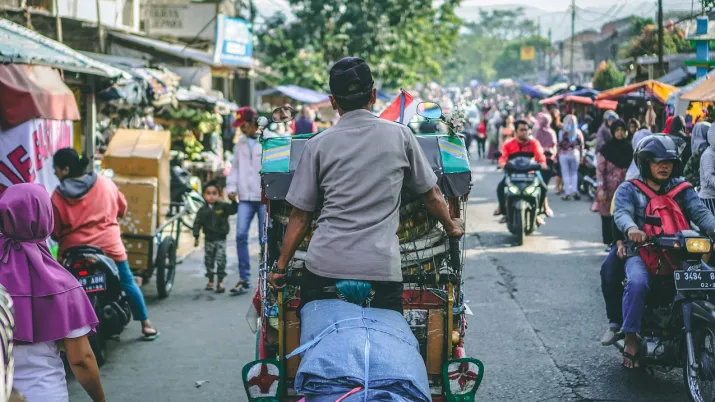
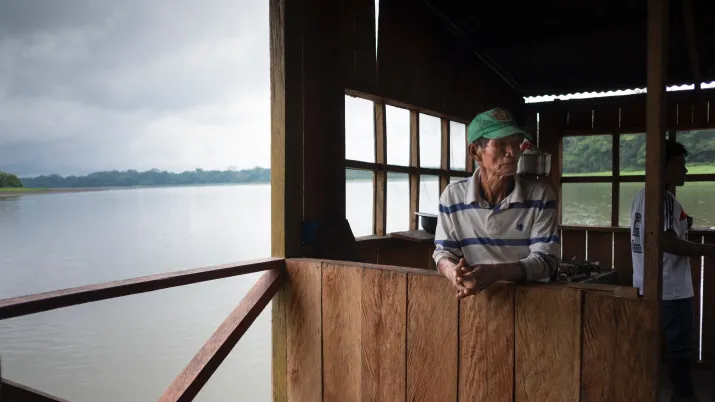
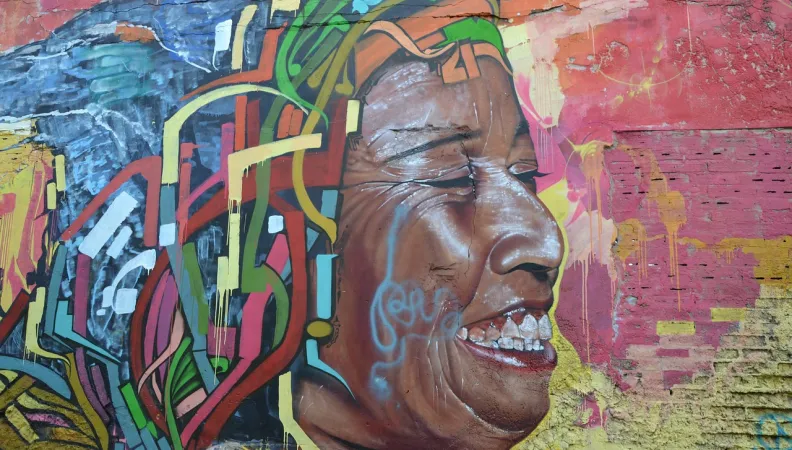 Legal notice EU (project) What impact do fiscal policies and social spending have on closing gender gaps in Colombia? The Extension of the EU-AFD Research Facility on Inequalities program seeks to explore this question in close collaboration with the Colombian government and in partnership with Universidad de los Andes.
Legal notice EU (project) What impact do fiscal policies and social spending have on closing gender gaps in Colombia? The Extension of the EU-AFD Research Facility on Inequalities program seeks to explore this question in close collaboration with the Colombian government and in partnership with Universidad de los Andes.
Context
As recent figures indicate, inequality and poverty in Colombia have increased in recent years, especially after the Covid-19 pandemic. The deterioration of these indicators places Colombia among the most unequal countries in the world. The Multidimensional Diagnostic on Inequalities in Colombia also demonstrates that gender gaps are particularly prevalent in the country. Indeed, employment rates are lower for women than for men at all levels of education. For example, in 2020, while the employment rate of women without any level of education reached 31%, for men it was 65%.
In this context, the Colombian government is committed to reduce the gaps between population groups and between territories and has identified closing gender gaps as one of its priorities. Given this situation, it is critical to delve into the understanding of the causes and solutions to inequality, and identify ways through which inequality can be reduced through public policies, social spending and fiscal policy.
In order to support the Colombian government in the development of public policies aimed at reducing inequalities, the Extension of the EU-AFD Research Facility on Inequalities, in close collaboration with local research centres and local authorities, has already:
- Elaborated the Multidimensional Diagnostic on inequalities and generated statistics on inequalities with the National Administrative Department of Statistics (DANE). The diagnostic is a statistical overview of inequalities from multiple angles that seeks to support public policy decisions by providing key information for the reduction of the most important gaps in the country.
- Implemented a fiscal incidence analysis through the methodology of the Commitment to Equity (CEQ), and, in close collaboration with the Ministry of Finances, elaborated a tool, which enables to assess the impact on inequalities of the latest tax reform in the country, through micro-simulations.
These two studies opened the door to new possibilities of analysis that provide data, information and relevant knowledge for the Colombian Government as an input to strengthen the design, implementation and monitoring of policy instruments that can reduce the inequality and gaps between population groups, especially those of fiscal policy and social spending.
This project is part of the Extension of the EU-AFD Research Facility on Inequalities. Coordinated by AFD and financed by the European Commission, the Extension of the Facility will contribute to the development of public policies aimed at reducing inequalities in four countries: South Africa, Mexico, Colombia and Indonesia over the period 2021-2025.
Objectives
This research project will use innovative methodologies to take advantage of the information derived from the merging of surveys, databases and administrative records to strengthen the understanding of the impacts of the fiscal and spending measures of the Colombian government on closing gender gaps, and more generally, to strengthen the analysis of income inequality measures in Colombia.
This study also aims to generate an in-house capacity allowing the Government of Colombia to continue reporting and analysing new inequality metrics that inform the design of more equitable public policies in the country.
Method
The research project will:
- Develop a methodology for the analysis of the impacts of fiscal and government spending measures on closing gender gaps and income inequality in Colombia, based on the CEQ tool;
- Determine the necessary methodological and operational components that will be updated on a recurring basis by different actors involved in public policy decision-making;
- Estimate a battery of indicators of the impact of fiscal, tax and social spending policy on gender gaps.
The analysis will use surveys, databases of supply and demand of social programs, as well as administrative records and tax information of natural persons, integrating them into a CEQ model. These data will serve as a basis for the inclusion of the gender approach and for the analyses that will be carried out as part of this research.
Throughout the research, working groups will be organised with the National Planning Department, the National Administrative Department of Statistics, the National Tax and Customs Directorate and other stakeholders who can contribute to the conceptual and methodological development of the research, the analysis of the results and the application of the tool to policy processes.
Research findings
You will find below the different research papers related to this project:
In progress
 Can South Africa secure the necessary investments to transition to a low-carbon economy and adapt its infrastructure to climate change, while balancing economic growth and maintaining macro-financial stability? AFD is supporting South Africa in addressing climate change through the GEMMES South Africa project, developed with academic and institutional partners.
Can South Africa secure the necessary investments to transition to a low-carbon economy and adapt its infrastructure to climate change, while balancing economic growth and maintaining macro-financial stability? AFD is supporting South Africa in addressing climate change through the GEMMES South Africa project, developed with academic and institutional partners.
Context
South Africa requires significant investment to transition to a low-carbon economy and resilient infrastructure, especially in energy and water sectors. Heavily reliant on coal and facing increasing water scarcity due to climate change, South Africa’s shift towards sustainability is crucial for long-term environmental and economic stability.
With the support of AFD, the University of Cape Town (UCT), Development Bank of Southern Africa (DBSA), Presidential Climate Commission (PCC), National Treasury, and the Centre for Sustainability Transitions of Stellenbosch University are developing a model that evaluates the macroeconomic impacts and various policy options and financing mechanisms for transitioning South Africa's water, energy, and food (WEF) systems in response to climate challenges.
This project falls under the “South Africa – Towards Inclusive Economic Development” (SA-TIED) initiative, a research and policy programme aimed at fostering inclusive economic growth in South Africa.
The GEMMES programme is developing a general theoretical model on the one hand, and national models applied to concrete cases and adapted to the characteristics of each country on the other, including the GEMMES South Africa model.
Objectives
The GEMMES South Africa project aims to:
- Analyze the macro-financial impacts of transitioning to renewable energy, ensuring water security, and maintaining food sustainability;
- Provide policymakers with insights and forecasts to inform decision-making and long-term planning for economic growth, employment, and climate resilience and more specifically provide insights into the macroeconomic effects of climate-resilient investments up to 2050;
- Enhance understanding of the vulnerabilities and opportunities in South Africa’s transition by integrating macro-financial feedback loops into structural change analysis;
- Foster sustainable development and mitigate environmental risks, contributing to long-term economic stability and improved quality of life;
- Promoting public policy dialogue on South Africa's low carbon transition.
Method
In addition to its specific transdisciplinary approach, which makes this project one of the few to integrate the notion of strong sustainability, the originality of GEMMES lies in its consideration of macro-financial imbalances and the impact of the low-carbon transition on all elements of the balance of payments.
GEMMES South Africa builds on UCT’s SATIM-GE energy transition model incorporating macro-financial feedback loops, which provide critical insights into the country's economic vulnerabilities and investment opportunities during this transition.
GEMMES South Africa is built in partnership with local authorities and research institutes to guarantee that the tool is coherent with the country's needs and to assure that the partners are capable of using and improving independently. It will account for:
- the dynamics of interest and exchange rates and their impact on private investment and employment;
- the fiscal and macro-financial constraints;
- different dynamics between banks and non-bank financial institutions;
- the capacity of public investments in green infrastructure to drive a new ecological transformation plan;
- and, the impacts of climate changes.
Expected results
The GEMMES South Africa project anticipates several key publications, including:
- A presentation of the specificities of GEMMES-South Africa and its baseline simulations;
- The macro-financial implications of infrastructures investments;
- The macro-financial implications of climate change impacts.
These papers will provide valuable insights into the project's findings and contribute to ongoing discussions in the field.
Research findings
At this stage, while the project is still in its early phases, it is expected that integrating macro-financial feedback loops will play a significant role in shaping effective policies and investment strategies. As the project progresses, ongoing stakeholder dialogue will be crucial in refining these concepts and addressing future challenges in the transition process.
Download the publications related to other South Africa modelling projects:
Want to stay updated on AFD’s latest research?
Discover other GEMMES projects
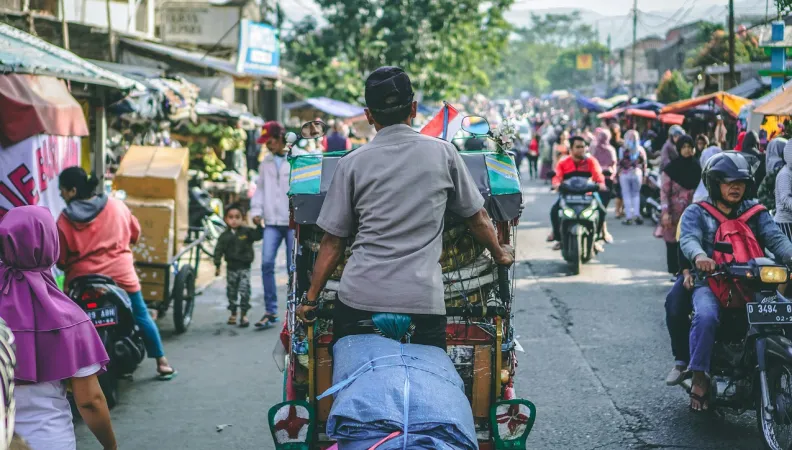 Legal notice EU (project) What would be the impact of a carbon tax policy on poverty and inequality in Indonesia? How can we design effective policies that simultaneously meet environmental and distributive objectives? In partnership with LPEM, the EU-AFD Research Facility on Inequalities aims to adapt the CEQ Institute framework to understand the distributional impact of actual and potential carbon prices in Indonesia, as well as potential mitigation options.
Legal notice EU (project) What would be the impact of a carbon tax policy on poverty and inequality in Indonesia? How can we design effective policies that simultaneously meet environmental and distributive objectives? In partnership with LPEM, the EU-AFD Research Facility on Inequalities aims to adapt the CEQ Institute framework to understand the distributional impact of actual and potential carbon prices in Indonesia, as well as potential mitigation options.
Context
Indonesia’s commitment to carbon emission reduction is aligned with its global responsibilities under the Paris Agreement. The country is also one of the 52 national jurisdictions in the world that have established carbon pricing regulations (World Bank, 2023). The primary goal of carbon pricing instruments implementation is to support Indonesia in achieving its Nationally Determined Contribution – which are commitments that countries make to reduce their greenhouse gas emissions as part of climate change mitigation.
In this context, the Government of Indonesia intended to introduce carbon pricing instruments on a voluntary basis from 2021 to 2024, with a shift to mandatory enforcement expected by 2025. Despite its modest start, the introduction of this tax marks a considerable advancement in Indonesia, particularly given the few low and middle income countries that have implemented a carbon tax.
Using carbon pricing as a method to foster a decarbonised economy is a significant policy instrument, yet it can lead to uneven burdens across different societal groups. These measures, while environmentally beneficial, may inadvertently promote inequality. If these disparities are not addressed, the push towards global decarbonation could be hindered, achieving less impact or imposing uneven costs.
Using an analytical tool from Commitment to Equity Institute (CEQ Institute), this research project aims to improve the design of policies that can both deliver environmental goals whilst reducing the distribution burden, by ensuring a just transition.
This project is part of the Extension of the EU-AFD Research Facility on Inequalities. Coordinated by AFD and financed by the European Commission, the Extension of the Facility will contribute to the development of public policies aimed at reducing inequalities in four countries: South Africa, Mexico, Colombia and Indonesia over the period 2021-2025.
This research project complements two studies carried out by the EU-AFD Research Facility on Inequalities in collaboration with the Indonesian government on Marine Protected Areas development policies and the production of a diagnostic on inequalities in the country.
Objectives
The general objective of this research project is to assess the environmental (emission) and welfare-distributional effects (indicators of poverty and inequality) of trading and non-trading instruments (carbon price and revenue). Specifically, the study aims to incorporate heterogeneous cost and impact assessments across the archipelago of Indonesia.
The study will focus on the impact of carbon pricing and other indirect fiscal instruments (taxes and subsidies) combined with direct taxes and social transfers that can assist in the mitigation of these instruments on welfare distribution and environment.
Method
In order to design more effective policies that meet both environmental and distributive objectives, CEQ Institute has developed an analytical tool using micro data on household characteristics, behavioural science and a data analytical tool known as microsimulation modelling. It is an ex ante planning tool taking micro units, such as households, and simulating policy changes in advance of policy implementation.
The framework incorporates the following discrete analytical dimensions:
- Methodological frameworks to model the distributional impact of fuel related fiscal policies;
- An Input-Output framework to track the indirect impact of carbon prices;
- Behavioural implications of alternative environmental challenges using a demand system;
- Identifying just transition solutions using social protection instruments.
The dataset integrates two primary sources: the 2016 Table Input Output from the Central Bureau of Statistics (BPS) and the 2022 National Socioeconomic Survey (SUSENAS). Data and information from the Indonesian Directorate General of Taxes and from various relevant ministries are also used to conduct the study.
Research findings
The research paper related to this project is available for download here: Data Analytics for a Just Transition. Distributional Impacts of Environmental Policies (Indonesia)
The study concludes that the success of Indonesia’s energy transition will depend not only on its environmental effectiveness but also on its ability to ensure fairness across different segments of society.
For further information
Other research projects supported by the Extension in Indonesia
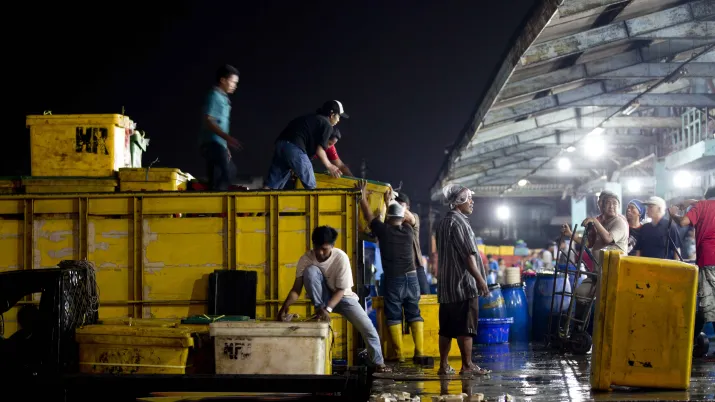
Harnessing the benefits of inequalities reduction in marine protected areas in Indonesia
Completed
2022 - 2023
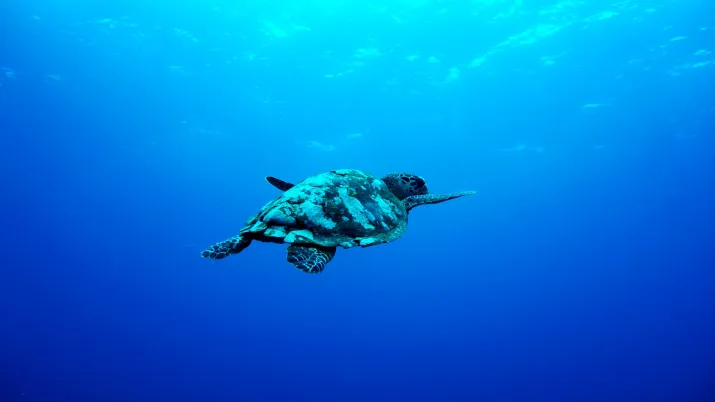
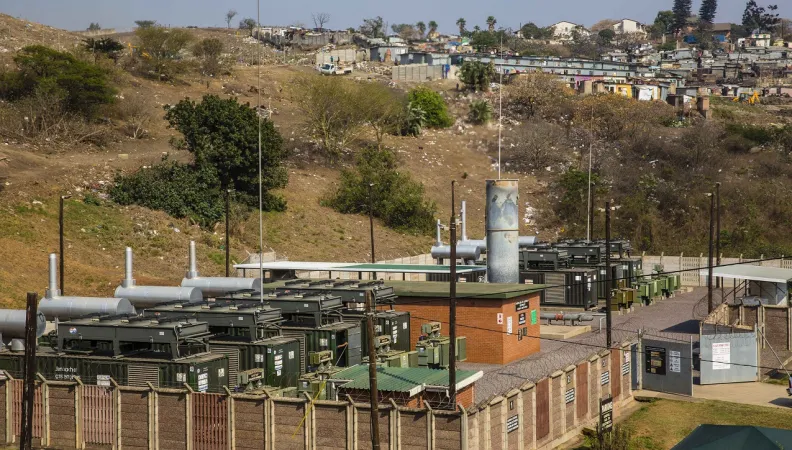 Legal notice EU (project) How can the South African government prepare the transition of workers from the coal sector to a low-carbon economy? What is the socio-demographic and spatial profile of workers in the coal value chain? What are the social protection options for preventing the potential rise in unemployment and inequality caused by the just transition? The Extension of the EU-AFD Research Facility on Inequalities is exploring these questions in partnership with the Development Policy Research Unit at the University of Cape Town.
Legal notice EU (project) How can the South African government prepare the transition of workers from the coal sector to a low-carbon economy? What is the socio-demographic and spatial profile of workers in the coal value chain? What are the social protection options for preventing the potential rise in unemployment and inequality caused by the just transition? The Extension of the EU-AFD Research Facility on Inequalities is exploring these questions in partnership with the Development Policy Research Unit at the University of Cape Town.
Context
South Africa remains one of the most unequal countries in the world. The country’s high-income inequality is driven primarily by extreme differentials in the labour market, where over 30% of the labour force is unemployed and earns zero income (Leibbrandt et al., 2010; StatsSA, 2024). Reducing unemployment is therefore at the heart of South Africa’s social and economic challenges, and is key to lower the level of inequality.
Coal is an important industry in South Africa and is central in the just transition. Rough estimates of total employment in the coal value chain alone are close to 200,000 – roughly 1.2% of total employment – while the contribution to output sits at 5.4% of growth domestic product (Makgetla et al., 2021). Moreover, the coal industry is highly geographically concentrated and underpins a large share of local and regional economic activity in certain areas, particularly localities within the Mpumalanga province.
In this regard, the potential negative employment impacts of a transition away from coal, and toward low carbon energy production, presents a significant socio-economic challenge for a country still dealing with the vestiges of apartheid. It is thus critical that the risks associated with these potential adverse employment effects are managed to ensure that inequality is not worsened by an unplanned transition.
This project is part of the Extension of the EU-AFD Research Facility on Inequalities. Coordinated by AFD and financed by the European Commission, the Extension of the Facility will contribute to the development of public policies aimed at reducing inequalities in four countries: South Africa, Mexico, Colombia and Indonesia over the period 2021-2025.
Find out more about the Extension in South Africa
This work is also part of AFD's dialogue with the South African authorities on the just transition and the identification of reforms to be implemented to ensure an inclusive transition.
Objectives
There is currently a limited understanding of how many workers are likely to be affected by a transition away from coal; how these workers vary by age, skill, or income level; what an effective social protection policy package for such workers would involve; how much a given basket of policies is likely to cost; and the financing options available. Yet, these are crucial elements in designing and implementing policies that limit the negative social and economic effects of transition and prevent potential increases in unemployment and inequality.
This project aims to make two primary high-level contributions:
- First, it will count and profile existing workers in coal and related industries using reliable, spatially sensitive microdata. This includes an analysis of employment, wages, and wage inequality;
- Second, it will propose a basket of social protection policies tailored to the identified worker profiles, with attendant modelled cost estimates, and potential financing options. This includes a focus on the wage inequality implications of various policy scenarios that highlight the importance of a just transition in South Africa.
Method
The research project has four main components that will encompass the following analytical areas:
- The utilisation of tax data to accurately identify at-risk employees in coal mining, coal-based electricity generation, and coal-adjacent industries, locating them spatially across the country. This will provide a reliable estimate of the number of direct and indirect coal industry workers at risk of being adversely affected in a shift away from coal.
- The production of detailed gender, age, and earnings profiles of the identified at-risk workers in the sector. This exercise is anchored around worker earnings and will be used to identify sub-groups, or cohorts, of workers who will require different forms of protection and support based on their existing skills, earnings, and age profile. The earnings data will in addition be utilised to examine inequality dynamics within the coal value chain and between coal value chain workers and those employed in mining generally and in the formal economy as a whole.
- Using these worker profiles to provide a framework of suitable policy options for the different cohorts in order to develop a comprehensive social protection response. Policy options would include individually assigned combinations of interventions such as early retirement packages, grants, and skills development. Furthermore, the study will provide a comprehensive overview of the various social protection policies available in South Africa and determine whether they could apply to affected workers.
- Examination of scenarios for declining coal employment and model a series of associate cost estimates for the various policy response options. This includes modelling possible policy scenarios over the full-time horizon of existing employees. The result is a costed picture of the implications of the just transition policy for South Africa’s coal sector, that includes a discussion of potential public finance options. The findings will also shed light on potential inequality outcomes to emerge from different just transition policy scenarios.
Research findings
You will find below the different research papers related to this project:
In progress
Discover other research projects on inequalities
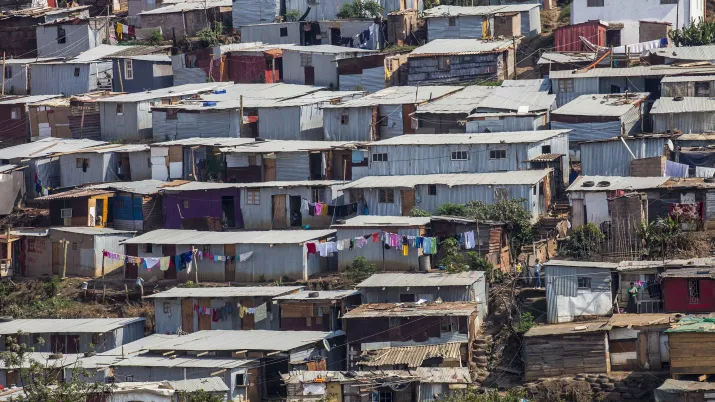
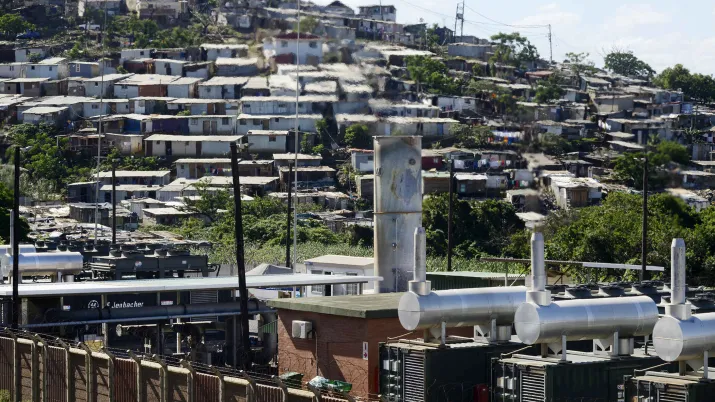

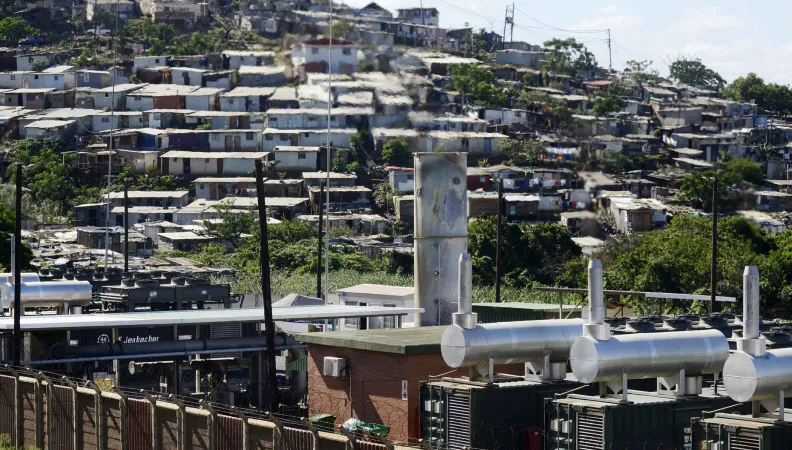 Legal notice EU (project) South Africa has embarked on the necessary path of a just transition, which will result in job losses in the coal sector, at a time when unemployment in the country is already very high. AFD, in partnership with the REAL Centre of the Wits University, is conducting a detailed analysis of the skills ecosystem that could feed into the various initiatives to support local authorities and communities of the Nkangala district in meeting this challenge.
Legal notice EU (project) South Africa has embarked on the necessary path of a just transition, which will result in job losses in the coal sector, at a time when unemployment in the country is already very high. AFD, in partnership with the REAL Centre of the Wits University, is conducting a detailed analysis of the skills ecosystem that could feed into the various initiatives to support local authorities and communities of the Nkangala district in meeting this challenge.
Context
With one of the highest youth unemployment rates in the world, South Africa’s planning for a just transition needs to take into account the vulnerabilities of its youth cohorts, especially those that can be qualified as “not in education, employment or training” (NEET). For example, a recent study conducted in the framework of the EU-AFD Research Facility on Inequalities revealed that the Mpumalanga province, the region with the highest exposure to the coal exit, has had a NEET youth rate of over 37% for the past decade, with almost three-quarters of them living in income-poor households.
Since 2019, the National Business Initiative (NBI) has been spearheading a multi-faceted and multi-sector partnership, which focuses on expanding and growing pathways for young people to access Installation, Repair and Maintenance (IRM) occupations. The IRM initiative is strategically aligned to various initiatives of the government to drive inclusive recovery and revitalisation of the economy, particularly in the aftermath of the Covid-19 pandemic. It has subsequently been incorporated as part of the Presidential Youth Employment Intervention (PYEI). The Initiative works on the premise that, by supporting township-based IRM entrepreneurs to strengthen and grow their businesses, and by linking them to localised market opportunities, there will be a concomitant increase in the demand for skilled labour, which could lead to the creation of employment opportunities. Therefore, it is a direct response to the youth unemployment challenge.
Collaborating closely with the NBI, the Centre of Researching Education and Labor (REAL Centre) contributed its expertise to the comprehensive analysis of the four key regions identified in Phase 1 of the IRM skills ecosystem mapping project: Atlantis (Western Cape), Mandeni (KwaZulu-Natal), Mamelodi (Gauteng), and Kathorus (Gauteng). Building upon the success of this initial phase, the REAL Centre will now expand the project's scope to the Nkangala district municipality, which is one of the three districts of Mpumalanga province.
This project is part of the Extension of the EU-AFD Research Facility on Inequalities. Coordinated by AFD and financed by the European Commission, the Extension of the Facility will contribute to the development of public policies aimed at reducing inequalities in four countries: South Africa, Mexico, Colombia and Indonesia over the period 2021-2025.
This work is also part of AFD's dialogue with the South African authorities on the just transition and the reduction of inequalities.
Objectives
This research project will conduct a detailed analysis of the skills ecosystem that could feed into the various initiatives to support local authorities and communities in the Nkangala district, which concentrates the coal-fired power plants that will be closed as a result of just transition policies.
Phase 1 of the project revealed that an IRM skills ecosystem mapping project is crucial for addressing inequality by thoroughly analysing the socioeconomic and demographic profiles of diverse townships in South Africa.
By identifying specific skill gaps and understanding the challenges faced by Small, Medium, and Micro Enterprises (SMMEs) in these areas, the study can inform targeted interventions aimed at reducing inequality in access to employment and economic opportunities.
Furthermore, by examining the role of Technical and Vocational Education and Training (TVET) institutions and conducting a comprehensive literature review, the study ensures that proposed interventions are evidence-based and tailored to the needs of the communities studied.
Ultimately, the study's approach of generating actionable insights in collaboration with stakeholders aims to drive meaningful impact and promote inclusive economic development in underserved regions, contributing to efforts to reduce inequality, to advance the principles of just transition and to foster a more inclusive society.
Method
Building on Phase 1 of the IRM skills ecosystem mapping, researchers will apply the following method:
- They will set the context for the Nkangala district through desktop research and a few selected key informant interviews;
- They will collect primary data and set up fieldwork through stakeholder mapping workshops and key informant interviews to collect data;
- They will then provide an initial narrative on the overarching local skills ecosystem from the site mapping exercise and will draw on the document review and contextual work on the Nkangala district. Drawing on Spours’ (2019) work on ecosystems, they will use three core elements: the dimensions of verticalities, horizontalities and mediation to understand and analyse the skills ecosystem Nkangala district and to guide the cross-site analysis, building on the work undertaken during Phase 1.
Research findings
You will find below the different research papers related to this project:
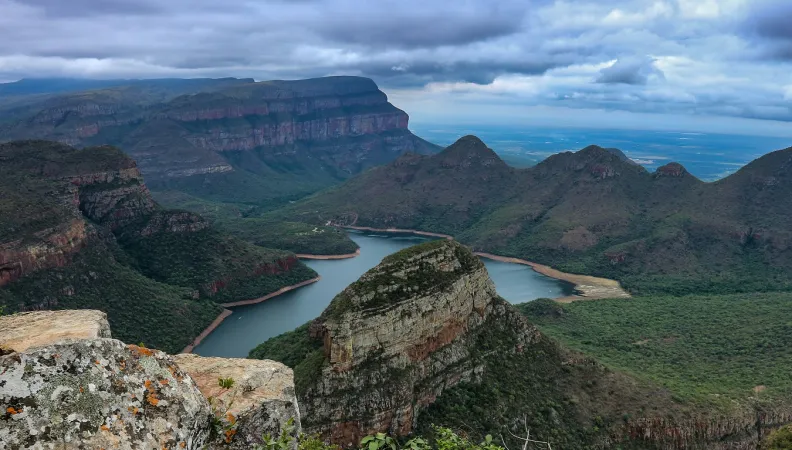 The degradation of nature can significantly impact a country's economic and social stability. Based on the case of South Africa, this study introduces a method to identify the economic sectors most vulnerable to risks stemming from biodiversity loss and assess their potential effects on various socio-economic indicators. Simultaneously, this method highlights sectors that present development opportunities due to a healthier biodiversity.
The degradation of nature can significantly impact a country's economic and social stability. Based on the case of South Africa, this study introduces a method to identify the economic sectors most vulnerable to risks stemming from biodiversity loss and assess their potential effects on various socio-economic indicators. Simultaneously, this method highlights sectors that present development opportunities due to a healthier biodiversity.
Context
Recent studies examining the risks to financial system stability associated with nature degradation have been conducted for countries such as the Netherlands, France, and others. These studies consistently underscore that biodiversity loss can have profound destabilising effects. Such effects may arise either from the collapse of ecosystems and the services they provide to economies (referred to as ‘physical shocks’) or from shifts in behaviour, technology, or regulation linked to ecological transitions (‘transition shocks’).
However, these risks extend well beyond the financial sector, particularly in countries from the Global South. How can the macro-financial context be better incorporated into analyses of nature-related risks in emerging economies, where it plays a critical role in the resilience of businesses and institutions? And in the context of climate challenges, how can we better account for the territorial dimension of nature-related risks and conduct spatially explicit assessments?
Objectives
Focusing on the case of South Africa, this study evaluates the potential effects of either a physical shock (resulting from the degradation of ecosystem services) or a transition shock (arising from measures or innovations aimed at reducing the pressures certain economic sectors place on biodiversity). These effects will be examined across multiple dimensions, including production, income generation, inflation, employment, wages, external balance, and fiscal stability.
Beyond this broad analysis, the method seeks to identify the specific locations of these risks within the region. This spatially explicit approach aims to provide actionable insights for local decision-makers, enabling them to implement well-informed measures for an effective ecological transition.
Method
This study introduces innovative methods for assessing the socio-economic risks associated with nature degradation, grounded in two main contributions:
- Multidimensional analysis of macro-financial and social variables: the study examines the exposure of key macro-financial and social variables to nature-related risks. By using input-output tables extended to include environmental and socio-economic satellite accounts, it identifies how these risks could significantly affect sectors that are directly and indirectly critical to production chains and, consequently, socio-economic stability.
- Granular spatial assessment: at the municipal level in South Africa, the study investigates nature-related vulnerabilities through a more detailed spatial analysis. This approach integrates spatially disaggregated economic data with mapped ecological data to ensure consistency, enabling the identification of specific socio-economic exposures.
Together, these two interconnected approaches emphasize the need for a holistic understanding of nature-related risks. They demonstrate the value of interdisciplinary collaboration between economists and ecologists, aiming to balance the intertwined goals of economic prosperity, social stability, and environmental sustainability.
Research findings
The study identifies economic sectors potentially exposed to significant risks and provides South African stakeholders with a foundation for conducting deeper analyses to determine the extent and materiality of these risks.
In South Africa, for instance, 80% of the country’s exports and 60% of business loans are heavily reliant on the water supply services provided by ecosystems. Beyond direct exposure, shocks affecting sectors dependent on these ecosystem services can cascade through the industrial network, triggering demand or supply disruptions. While 18% of jobs and 24% of salaries are directly exposed to such risks—particularly in the property and manufacturing sectors—these figures rise to 48% and 56%, respectively, when considering activities indirectly linked through value chains.
Given biodiversity’s strong dependence on geographic factors, it is essential to complement prior analyses with geolocalised studies. These analyses identify the economic activities located in areas where ecosystems and their services are already degraded. For example, when factoring in the location of companies involved in exports, the initial estimate that 80% of South African exports depend on surface water supply decreases to around 23%. This revised figure reflects exports generated by activities reliant on surface water supply and situated in municipalities where this ecosystem service is significantly degraded. In other words, when the geographic degradation of ecosystem services is considered, nearly a quarter of net exports are directly vulnerable to water scarcity.
Find out more:
- Read the research paper: Socio-economic and spatially-explicit assessment of nature-related risks – The case of South Africa
- Read the research paper: A framework to assess socioeconomic and spatialized nature-related risks: An application to South Africa (Environmental and Sustainability Indicators, 2025)
- Watch the replay of the Research Conversations webinar on the research project, with South African partners
Key outcomes
The method has garnered interest and validation from numerous economic and environmental policymakers, highlighting its relevance. Rather than focusing on precise numerical results, the emphasis lies on the orders of magnitude and the identification of economic sectors that are either highly dependent on ecosystem services (exposed to physical risks) or exert significant pressure on biodiversity (exposed to transition risks). These insights are sparking interest and debate.
One of the key outcomes has been fostering dialogue among South African stakeholders who previously had limited interaction, including the South African National Biodiversity Institute (SANBI), the Department of the Environment, the Department of Finance, and the South African Reserve Bank (SARB).
South African stakeholders are now working to translate these technical findings into accessible materials for non-specialist audiences and to facilitate deeper discussions with representatives from sectors identified as either risk-exposed or offering opportunities for resilience and positive socio-economic impacts.
Furthermore, the South African Reserve Bank, in collaboration with the Agence Française de Développement (AFD), is applying this method to assess the financial sector's exposure to nature-related risks across member countries of the Southern African Development Community (SADC). The Development Bank of South Africa (DBSA) has also begun using this approach to evaluate the exposure of its own portfolio. Future iterations and enhancements of the method are anticipated as its use expands.
Contacts
- Paul Hadji-Lazaro, Ecological Macroeconomist at AFD
- Julien Calas, Research Officer on Biodiversity, AFD
- Antoine Godin, Economist, Head of AFD Macroeconomic Modelling Unit
- Andrew Skowno, National Biodiversity Analysis Coordinator at SANBI
- Pamela Sekese, Geospatial Consultant
Stay up to date with our latest research news
